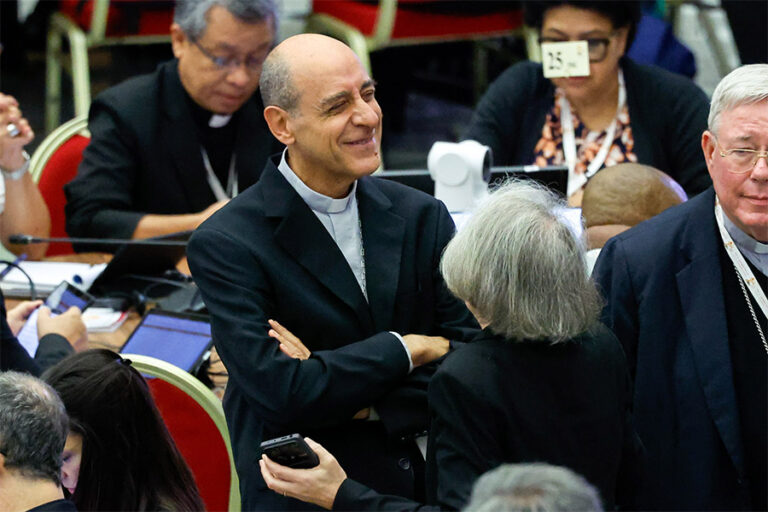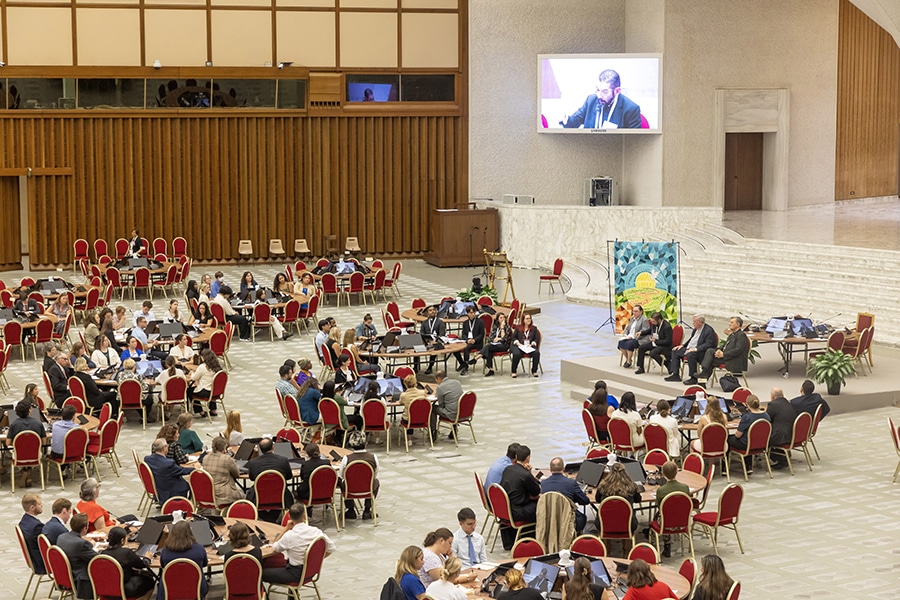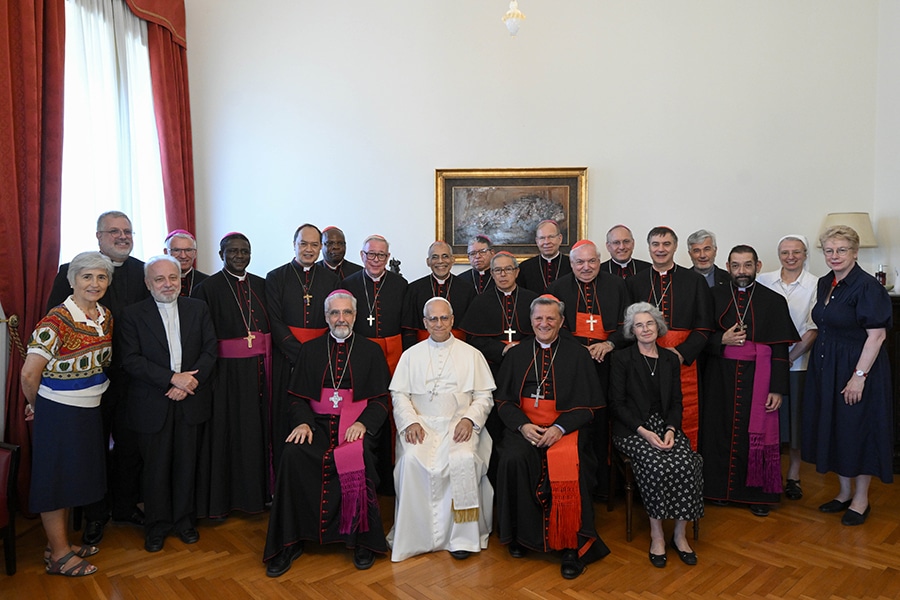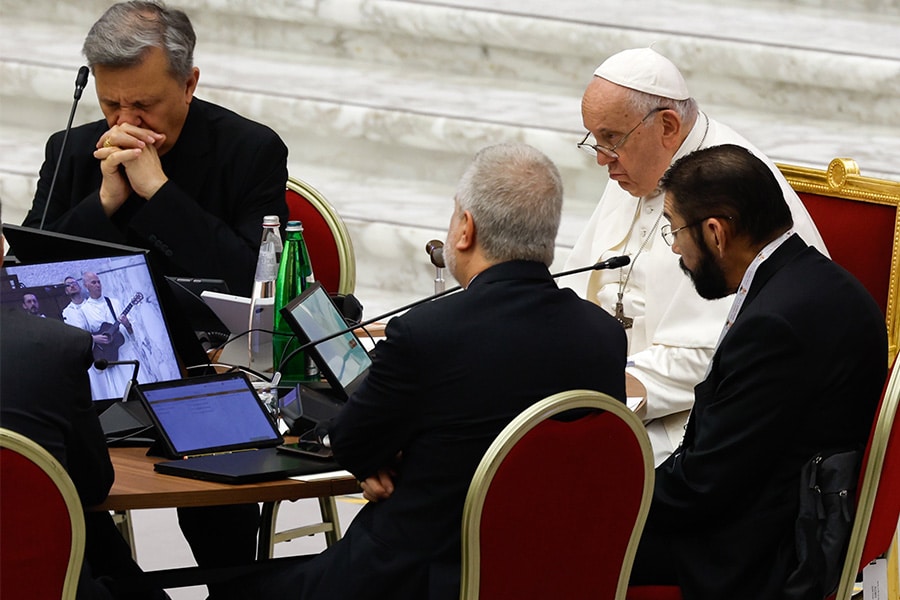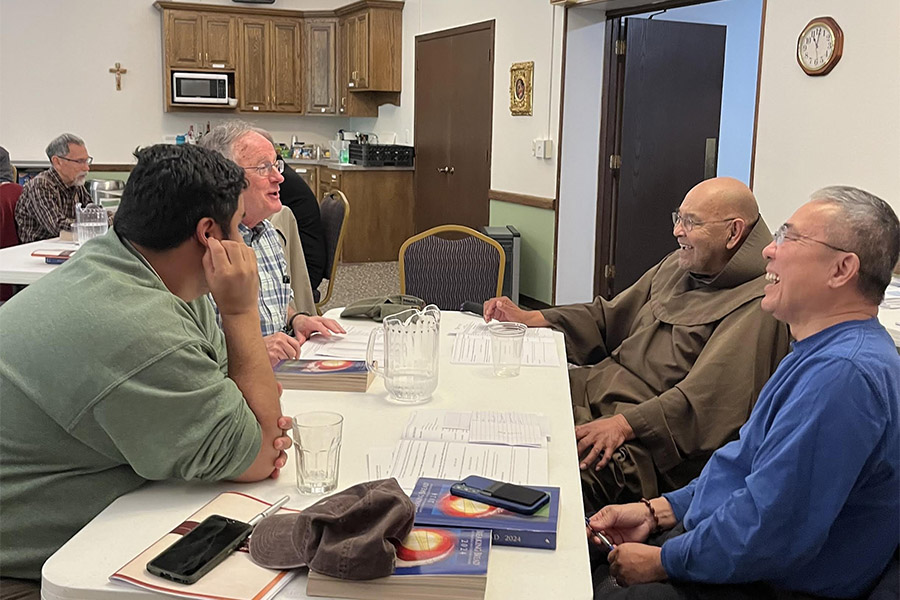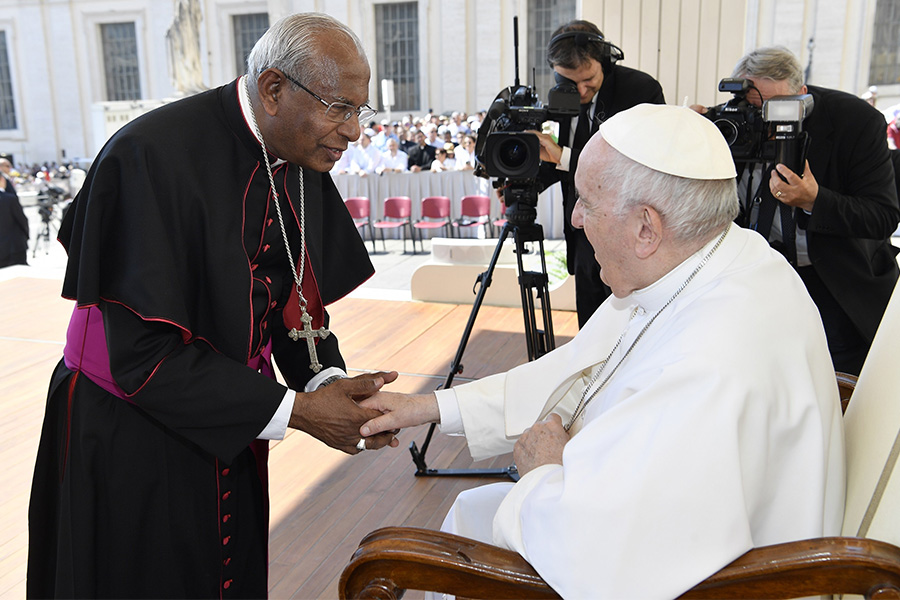VATICAN CITY (CNS) — The Catholic Church must take concrete steps — and soon — to recognize and empower women’s leadership and ministry in the church, Cardinal Víctor Manuel Fernández, prefect of the Dicastery for the Doctrine of the Faith, told members of the Synod of Bishops.
“I am convinced that we cannot wait to take steps forward for the empowerment of women in the church,” but part of that requires distinguishing between roles that require ordination and those that do not, the cardinal told about 100 synod members and participants Oct. 24.
The cardinal scheduled the meeting after missing a gathering Oct. 18 intended to inform members of the Synod of Bishops about the study group his office is coordinating on women’s ministry and roles within the church.
At the second meeting, participants again let the cardinal know they were angry that he was not present the previous week, and they questioned how the study group related to “synodality” given that, so far, the cardinals, bishops and theologians involved were only dicastery members and consultants, which include very few women and very few people from outside Italy. Cardinal Fernández repeated what he told synod members Oct. 9: the study group would seek input from other women as well.
“On this topic,” he responded, the input from women theologians is “the most important,” but he also said that Cardinal Gianfranco Ghirlanda, for example, has submitted a report on the relationship in canon law between ordination and “potesta” or power. “This is a very important theme for developing the question of laity,” he said, as it addresses “who can have an authority (or) a mission of leading communities.”
Although the meeting Oct. 24 was private, the Vatican published an audio recording of the 90-meeting conversation the following day.
After the first assembly of the synod on synodality in 2023, Pope Francis set up 10 study groups to reflect more deeply on some of the most controversial or complicated questions raised during the synod process. Opening the diaconate to women and ensuring they have decision-making roles in the church was one of those questions.
But Cardinal Fernández told the synod Oct. 2 that Pope Francis does not consider the question of women deacons “mature,” and so his study group is focused more on ways to expand the recognition of women’s leadership and ministry in the church in ways that do not require ordination.
At the meeting Oct. 24, the cardinal clarified that while the pope believes the time is not ripe for women deacons, “he does not want to close the question; he says you can continue to study it patiently without obsession, without rushing, you can continue to study. And this is important.”
For that reason, the cardinal said, the second commission Pope Francis set up in 2020 to study women deacons will be “revived” and already has set a date to meet.
The conclusions of that commission and an earlier one, established in 2016, “were that things absolutely are not clear,” the cardinal said. “I haven’t studied the reports, but I’ve glanced at them a bit.”
Some historians say the women described as deacons in the New Testament and in early church writings were ordained while others say they simply were blessed, he said.
“So, I ask: If one discovers that in past centuries there were women who preached at Mass and they were not ordained, is that worth less?” Cardinal Fernández asked synod members. Or if there was evidence that women exercised authority in guiding communities, but were not ordained, he asked whether that would take away from their stature.
“Here, it is understandable when the pope says do not clericalize” the laity, the cardinal said. “That is why we think the primary path is to look at the place of women in the church,” while continuing to look at “a secondary path, which is also important but not primary, and that is the question of the diaconate.”
At the same time, he said, there is an ongoing theological discussion with one group saying, “ordination is not ordered exclusively to the priesthood but to ministry, and that opens the path to women’s diaconate. The other argument insists on the unity of sacred orders — diaconate, priesthood, episcopacy — and there, it would be more difficult” to argue that women could be ordained.
Insisting he was speaking as a theologian and not as doctrinal dicastery prefect, Cardinal Fernandez said, “I think the grounds for saying no to the female diaconate are reasonable, but they are not sufficient. And the reasons for saying yes are still not enough to respond to the negative opinions.”
“The conservatives will say, ‘He’s a fool who has not understood that it is impossible to ordain deaconesses, that it is contrary to the dogma and the tradition’ etcetera,” the cardinal said, “and progressives will say that I do not understand that there is nothing logical or reasonable in refusing ordination (to women) and that it is just a medieval fixation etcetera.”
However, he said, “I am convinced that we cannot wait to take steps forward for the empowerment of women in the church” by distinguishing what requires ordination and what does not. “That is the idea of this study group.”
Read More Synodality
Copyright © 2024 Catholic News Service/U.S. Conference of Catholic Bishops

